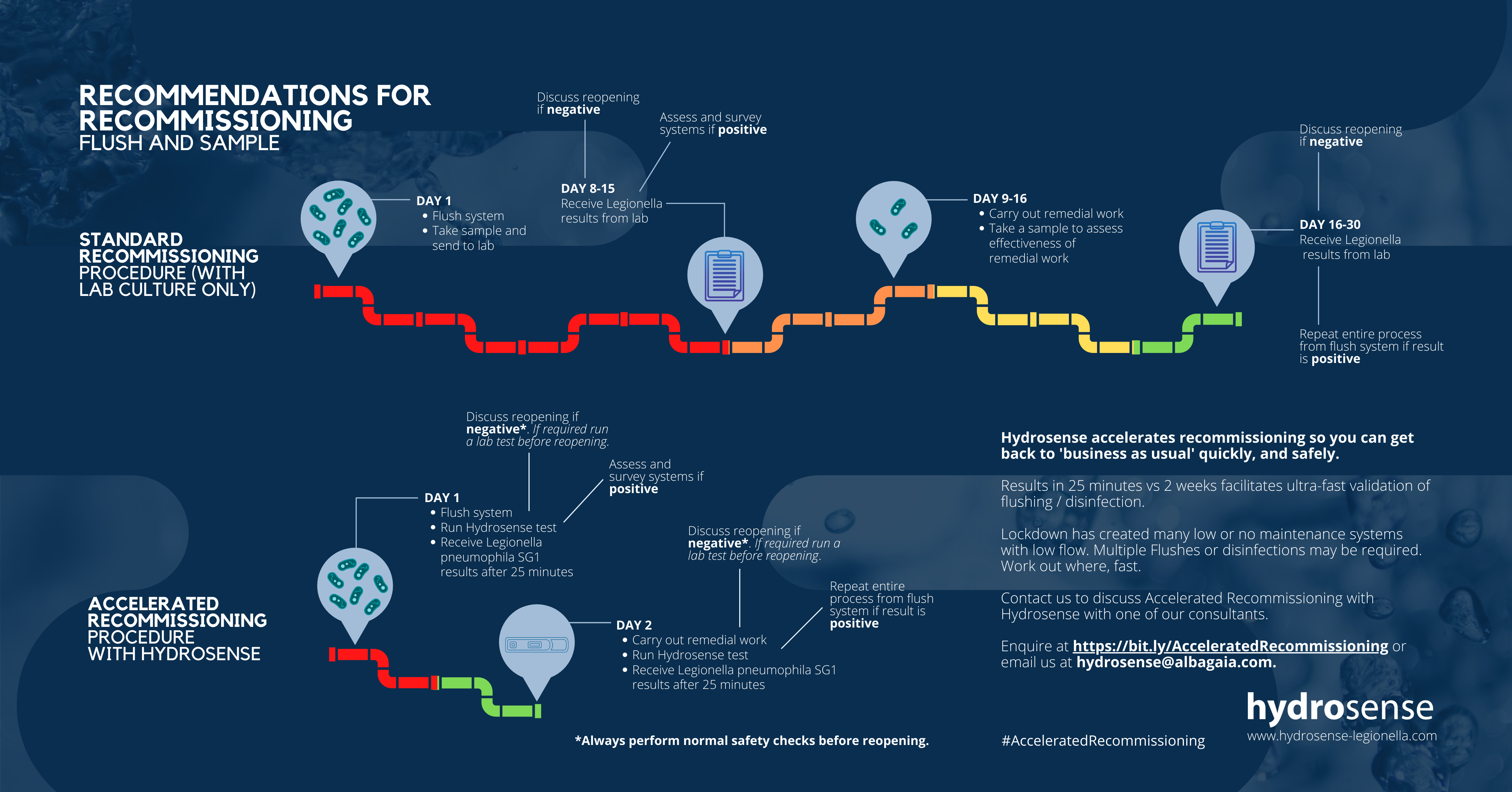Due to factors such as system stagnation, thermal gain, biofilm formation and increased susceptibility to secondary infections, it is absolutely crucial that mothballed sites are recommissioned properly to minimise the risk of Legionnaires’ disease after lockdown.
If recommissioning is not carried out with care, we may see disastrous levels of Legionella risk and no doubt, some really serious outbreaks - which can put a huge additional burden on public health and can cause lasting damage to businesses that have already suffered during the on-going pandemic.
In an article in The Times, Professor Hugh Pennington, professor of bacteriology at the University of Aberdeen, warned that potentially deadly Legionella bacteria will have been growing in factories and other businesses during this period of closure. He cautioned that if this is the case, then these facilities can expect a Legionella outbreak, if not several, when they start re-opening.
When recommissioning mothballed sites, the key issues are speed and safety. However, traditional methods of Legionella testing, like laboratory culture, are time-consuming and can create significant delays when re-opening – especially where several rounds of remedial work are needed to bring a system or location back to safety.
Accelerating Recommissioning with Hydrosense
At the start of the pandemic Legionella experts at Hydrosense Ltd reached out to water management professionals across the globe to find out how long the recommissioning process actually took.
Bearing in mind that several rounds of work were not only possible but expected. They found that two rounds of flushing and sampling would take around 16-30 days when carried out with lab culture testing only.

However, when the Hydrosense rapid antigen test was used, two rounds of flushing and sampling could be reduced down to only two days. When looking at a full mains or system disinfection, time savings were just as dramatic.
With lab culture only, 2 rounds of full mains or system disinfection would take around 28-35 days to complete whereas with Hydrosense, this process could be reduced down to 7 working days.
%20or%20Single%20System%20Disinfection%20(DC%20_%20HWS).png?width=4535&name=Full%20(mains)%20or%20Single%20System%20Disinfection%20(DC%20_%20HWS).png)
Timelines for accelerated recommissioning with Hydrosense do not include the time needed to carryout normal safety checks before re-opening, such as running a lab culture test in parallel for legal reasons. You should check your local legislation or guidance to see what safety checks are needed in your region before re-opening.
Hydrosense's ultra-rapid test can give your company the edge over competitors when it comes to speed of recommissioning by reducing time waited for results before and after recommissioning work.
Paul Abbott at Surevent UK Ltd recently used the Hydrosense rapid test to recommission 300 sites for one of the UK's largest mobile and broadband providers. Here's what he had to say...
“We needed to disinfect, flush and sample all properties in two weeks. Hydrosense gave us the edge with a faster turn-around time and allowed the building to be opened faster and more safely. Hydrosense kits can be used for peace of mind whilst we await the lab results and is invaluable during our current circumstances.” - Paul Abbott, Surevent UK Ltd.
Read our case study with Surevent UK
